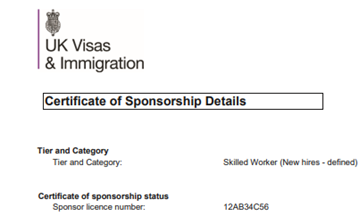Information Technology Trainers, classified under SOC Code 3573, are vital professionals in the realm of education and workforce development, specializing in the delivery of IT training programs for organizations and individuals. Their roles encompass various responsibilities including:
- Assessment of Training Needs: Identifying the specific IT skills required for particular roles or tasks within an organization.
- Program Development: Creating comprehensive training programs tailored to meet the identified requirements, including preparing necessary IT equipment, lectures, and study aids.
- Trainee Supervision: Monitoring the development of trainees, providing assistance with any difficulties, and generating regular progress reports for management to ensure effective learning outcomes.
- Experiential Learning: Arranging work experience opportunities and instructional visits to enhance practical learning for trainees.
- Curriculum Planning: Developing and updating training curricula and staff duty rotas, adapting these in response to industry developments.
- Advisory Role: Consulting with management and staff regarding training programs, discussing progress, and resolving any issues that may arise.
As the reliance on technology grows, the demand for skilled Information Technology Trainers is increasing, making them essential for the continuous professional development in the ever-evolving tech landscape. This guide will assist HR professionals in understanding the processes of hiring and sponsoring IT trainers under the UK’s immigration system.
What is SOC Code 3411 for Information technology trainers?
SOC Code 3573 refers to Information Technology Trainers who convey essential IT skills and knowledge to individuals or organizations. Their responsibilities can include:
- Assessing training needs: Evaluating the IT training requirements of organizations or individuals to identify necessary skills for specific roles or tasks.
- Developing training programs: Designing comprehensive training curricula and preparing all necessary IT equipment, lectures, demonstrations, and study aids.
- Supervising trainee development: Monitoring and guiding trainees through their learning process, addressing any difficulties they may encounter.
- Preparing progress reports: Documenting and reporting the progress of each trainee to management on a regular basis.
- Arranging practical experiences: Organizing work experience opportunities and instructional visits to enhance learning and practical application.
- Planning curriculum and staffing: Developing a detailed curriculum and staff duty rota, updating them as needed based on new developments in technology or training methodologies.
- Advising on training programs: Providing recommendations on training offerings and discussing both progress and challenges with staff and trainees.
Information Technology Trainers play a vital role in upskilling the workforce, ensuring that individuals and organizations remain competitive in the constantly evolving tech landscape.
Eligibility to Hire Information technology trainers (SOC Code 3411)
1. Job Requirements
Information Technology Trainers must exhibit a thorough understanding of IT training methodologies and possess relevant qualifications and experience. Key requirements include:
- Training Needs Assessment: Ability to assess the IT training requirements of an organization or individual, identifying specific skills needed for various roles.
- Training Program Development: Experience in designing and developing comprehensive training programs tailored to meet diverse needs, including preparing IT equipment, lectures, demonstrations, and study aids.
- Supervisory Skills: Proven ability to supervise trainee development, assist individuals facing challenges, and prepare regular progress reports to management regarding trainee advancement.
- Work Experience Coordination: Strong organizational skills to arrange work experience opportunities and instructional visits that complement theoretical learning.
- Curriculum Planning: Competence in planning curriculum and staff duty rosters, with an ability to update or amend them based on ongoing developments in technology and training methods.
- Advisory Skills: Capacity to advise on training programs effectively, engaging in discussions regarding progress or challenges encountered by staff and trainees alike.
- Education: While formal educational requirements may vary, a degree or certification in Information Technology, Education, or a related field is advantageous.
Ensure that the job description aligns with SOC Code 3573 and that the trainer’s experience and qualifications fulfill the expectations for the role.
- Salary Thresholds
- Use the Minimum Salary Calculator to ensure your salary offer meets immigration requirements.
Sponsoring Information technology trainers: A Step-by-Step Guide for HR Professionals
Once you’ve confirmed that the role and candidate meet the eligibility requirements, follow this step-by-step guide to sponsoring Information technology trainers under SOC Code 3573.
Step 1: Obtain a Sponsor Licence
Before hiring non-UK Information technology trainers, your company or institution must obtain a sponsor licence. This licence enables you to legally sponsor overseas Information technology trainers under the Skilled Worker Visa program.
- Sponsor Licence Application: Submit documentation proving that your business is legitimate and has a genuine vacancy. Visit the sponsor licence application guide for more information.
- Sponsor Licence Fees: Small businesses typically pay £574, while larger institutions pay £1,579. For more information, visit the sponsor licence fees guide.
- Processing Time: Applications typically take up to 8 weeks, but using the Sponsor Licence Priority Service can reduce the processing time to 10 working days.
Once your sponsor licence is approved, you will receive a sponsor licence number, which allows you to assign Certificates of Sponsorship (CoS).
Step 2: Assign a Certificate of Sponsorship (CoS)
Once you have your sponsor licence, the next step is to assign a CoS to the Information technology trainers. This document provides key details about the job and the individual being sponsored.
- Defined vs Undefined CoS: Use a Defined CoS for Information technology trainers applying from outside the UK, and an Undefined CoS for those already in the UK. Learn more in the Defined & Undefined Certificates of Sponsorship guide.
- Required Documents: Provide details such as the Information technology trainers’s portfolio, passport and job offer. Refer to Documents Required for Certificate of Sponsorship for a full list of necessary documents.
Step 3: Apply for the Skilled Worker Visa
Once the CoS is issued, the Information technology trainers can apply for the Skilled Worker Visa.
- Visa Fees: Fees vary depending on the role and visa length—use the visa fees calculator to estimate the costs.
- Immigration Skills Charge: Employers are required to pay this charge as part of sponsoring non-UK workers. This is separate from visa fees.
Conducting a Right to Work Check for Information technology trainers
Before the Information technology trainers begins working, you must conduct a right to work check to ensure they are legally allowed to work in the UK.
- Manual Right to Work Check: Verify original documents such as the Information technology trainers’s passport and visa.
- Online Right to Work Check: If the Information technology trainers holds an eVisa, you can use the UK government’s online system to verify their right-to-work status.
For more details on how to perform these checks, see the right to work check guide.
Post-Hiring Responsibilities and Compliance
- Record-Keeping and Reporting
- Record-Keeping: Maintain accurate and up-to-date records of the Information technology trainers’s employment details, salary and contact information.
- Reporting Changes: Report any significant changes to the Information technology trainers’s role—such as promotions or salary increases—via the Sponsor Management System (SMS).
- Sponsor Licence Duties and Compliance
- Failure to comply with your sponsor licence duties can result in penalties or sponsor licence revocation, impacting your ability to sponsor future Information technology trainerss.
How Borderless Can Help with Sponsoring Information technology trainers
Sponsoring Information technology trainers under SOC Code 3573 can be a complex process, but Borderless can simplify it for you. We offer comprehensive support to help you manage the entire sponsorship process.
End-to-End Sponsorship Support
At Borderless, we assist with:
- Sponsor Licence Application: Guiding you through the application process and ensuring all required documents are submitted correctly.
- Certificate of Sponsorship Assignment: Streamlining the CoS process to make hiring easier.
- Compliance Management: Helping you stay compliant with immigration laws to avoid penalties.
If you need assistance with hiring or sponsoring Information technology trainers, get in touch for personalised support.
Conclusion
Hiring and sponsoring Information technology trainers under SOC Code 3573 can be a rewarding way to enrich the cultural landscape of your organisation. By following the steps outlined in this guide, you can successfully navigate the sponsorship process while ensuring compliance with UK immigration laws.
For further guidance, Borderless is ready to assist you with all your sponsorship needs. Contact us for expert advice.
Automate Home Office Audits with Borderless
The Borderless platform provides a centralized system for all sponsorships, automating reminders for key tasks and ensuring best practices across your organization, simplifying audit preparation and ongoing compliance.






